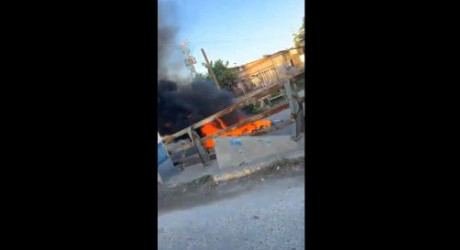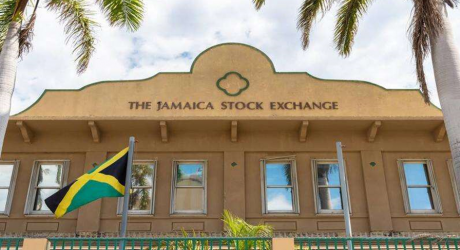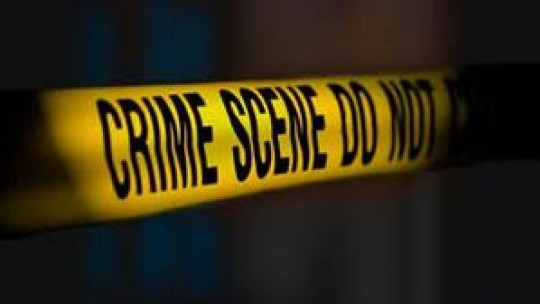When people have nothing to lose
4:45 pm, Sun August 7, 2016
By Bumpy Walker
As a young person I hated poetry. Apart from the rare Evan Davis poem or two, poetry struck me as unrelatable dirge. Before Mutaburka opened my eyes to value of poetry in popular music, poetry appreciation began through acquaintance with the work of a Yanki son of a Jamaican father.
Gil Scot Heron was a brilliant pianist, author, jazz musician, film maker; was described with that irritating media term - a social activist, who combined poetry with music. Before anyone goes and canonise him, he was a user of recreational drugs, who died from HIV complications. What has happened in the United States of America recently has made me aware that Gil is actually a prophet.
When people have nothing to lose
In recent weeks there have been more incidents in which young males of sub Sahara African descent encountered local police in the United States and died violently as a result. Whenever this happens, the agricultural cliche of “a few rotten apples in the barrel", is employed to rationalise these overreactions. Inevitably the blamed is shift onto the victim, normally, by examining the accompanying video and showing muscular micro motions were considered by the police as life threatening. The agitated public is told to "wait till investigation is completed,” but in the end, punishment is rarely meted out to the life taker.
Given the frequency with which these extra judicial executions of young Afro Americans take place, a better agricultural imagery would be a foot-and-mouth outbreak, with few animals displaying symptoms but the majority of the animals being contaminated.
Inner City Blues
What Gil Scot Heron describes in one of his songs was the violent reactions to these police lethal actions. In his version of Marvin Gaye's Inner City Blues, Gil added a poem called The Battle of New Orleans. The poem describes the actual events that African-Americans face in their day-to-day life: bad housing, effective institutional diminution from both private and public organizations, etc. Then Gil adds a monologue on the actions of an ex Vietnam vet, Mark Essex, who embarked on a mass killing of police. The poem describes events that African Americans face in their day-to-day life, such as poor housing, and dimunition by both private and public institutions.
The reaction that the poem conjures up, is that the protagonist was a victim or had empathy for victims of this injustice, applying the lethal skills he had been taught in the military to the civilian police. It could be viewed as a template for John Morrell's Rambo. But the poem is eerily similar to the recent shootings in Dallas and Baton Rouge.
"Mark Essex took to the roof guerilla style, with the effect that "eight was dead and a dozen were down"
This was in the 1970's, at a time when many Africans in the southern part of the Motherland were, by the use of force, attempting to secure their liberation. In the poem, a parallel in ethno-political struggle is drawn between both continents, with the single-word concluding line: "Liberation"
The recent reaction has led to talk about police protection which, in every-day terms, means further militarisation of the American police. Again Mr. Scot Heron was right on point some forty years ago with prophetic words:
"Bring on the stone rifle and knock down walls
Bring on the Elephant guns
Bring on the helicopters to block out the sun"
Let's not forget the Constitution
There are no greater practical political documents than the Bill of Rights and the United States Constitution at securing the dignity of the individual. They provided checks/ balances, independence of various areas of government, freedom of expression and the right to happiness. Given both these were originally written nearly a quarter of a millennium now, they remain surprisingly relevant. Yet, at some stage, the rights of people of African origin were degraded to be 3/5 of a man in the original document, as, believe it or not, an anti slavery political motive. (Africans were lucky, Native Americans, well...).
For all their theoretical idealism, what has evolved is an unequal society where the benefits and rewards are harder to come by for Latinos, and those of African descent in the world's most powerful nation. Let's face it, Newt Gingrich's says so. Even The Donald made reference to the higher-than-average occurrence of poverty in African American households in his acceptance speech as Republican Party Candidate for POTUS. In terms of comparative quality of life and socio economic indicators, African Americans’ lives today may be valued at less than that the historic 3/5.
Combine the social myths of Yankee Exceptionalism, a continuous cadre of African-American veterans who have imbibed the concept of being a protected elite returning home from its seemingly "forever" wars to a society that places a lower value on their co ethnics. With the easy access to near military grade arms, it is easy to see further incidents of veterans going John Rambo towards the civilian police.
Cowbwoy ‘Flim’ and American Exceptionalism
To me, part of the United States histori-social myth is that the righteous, stoic individual can stand up to evil organisations. This is portrayed in literature, film and song. In Shane, the ex killer stands up alone with gun and fist against seemingly overwhelming odds and triumphs. In my beloved country and western books by Louis L'amour, repeatedly the Sacketts too fought against and triumphed over this scenario, reinforcing the idea that man alone with violence and superior individual morality can overcome such strong odds. In these and seemingly endless cowboy films again and again the loner stands strong and wins.
I often wondered why there were so few films or novels in which the lone African, competent with arms from battle experience was portrayed. John Singleton, in his film based on the mass killing at "Rosewood", has the World War I veteran, portrayed by Ving Rhimes, saving survivors from the mob which included police men. Imagine the outrage if Rambo was cast as a Black man!
The Essex incident, Baton Rouge and Dallas are not isolated cases where the institutional disregard for the rights of men of African descent with military experience created a reaction directed at the police or military. There are historical precedents: Port Chicago mutiny in the 1944, Agana incident 1944, Fort Lawton incident, Christopher Donner in 2013. Each time there is an incident there is a stretch to demonstrate that there is an element of mental instability. I here tend to agree that the individual who attempts to stand up to the overwhelming might of the United States Government must have a desire to end his/her own life. Suicide is a mental issue.
For my part, I strongly believe that in mature democracies the rights of any group cannot be ensured by individuals taking arms in their sea of troubles. I subscribe to the instructions of our national founding father, Norman Manley, that organizing and political pressure can and must other be used to ensure the equity of fairness. Otherwise, the blessings of liberal democracies will be taken, not merely from the identifiable disadvantaged group, but from society in total, and a 1990's Yugoslavia situation can develop.
Step forward a good man
Barack Obama is America’s Head of State and Head of Government. In this current atmosphere, the disadvantage of both roles combined is apparent. As Head of Government he is ultimately accountable for the actions of the instruments of government; in this case, the police. As Head of State, he is the embodiment of the rights of all civilians, including the victims of the police. Politically, it is a mine field, especially as he pointed out that one of the recent victims, Trayvon Martin, bore a passing resemblance and could have been his son. The immediate hot indignation was furious!
Listening to his speech at Dallas, at times he seemed to have squared this impossible political circle. Acknowledging both the pain of all victims, appealing to the Lincolnian “better angels of our nature" while acknowledging that the historical lack of social investments in schools, social programmes and other special needs, have created sick communities. Set against those impossible odds, he accepted that the police were unequal to the task of coping with the resulting social problems.
While Obama highlights the more benign angelic nature, he needs to address the other angelic term from the "war of Yankee aggression" that was applied to soldiers: "killer angels". That is what the police seem to be too often. Is it any wonder that some African-Americans have begun to see the police in the same light that the Apache, Comanche, Nez Perce saw the Buffalo Soldiers?

9:32 am, Sat April 20, 2024
.jpg)
5:08 pm, Wed April 17, 2024

7:07 pm, Wed April 17, 2024








 All feeds
All feeds







